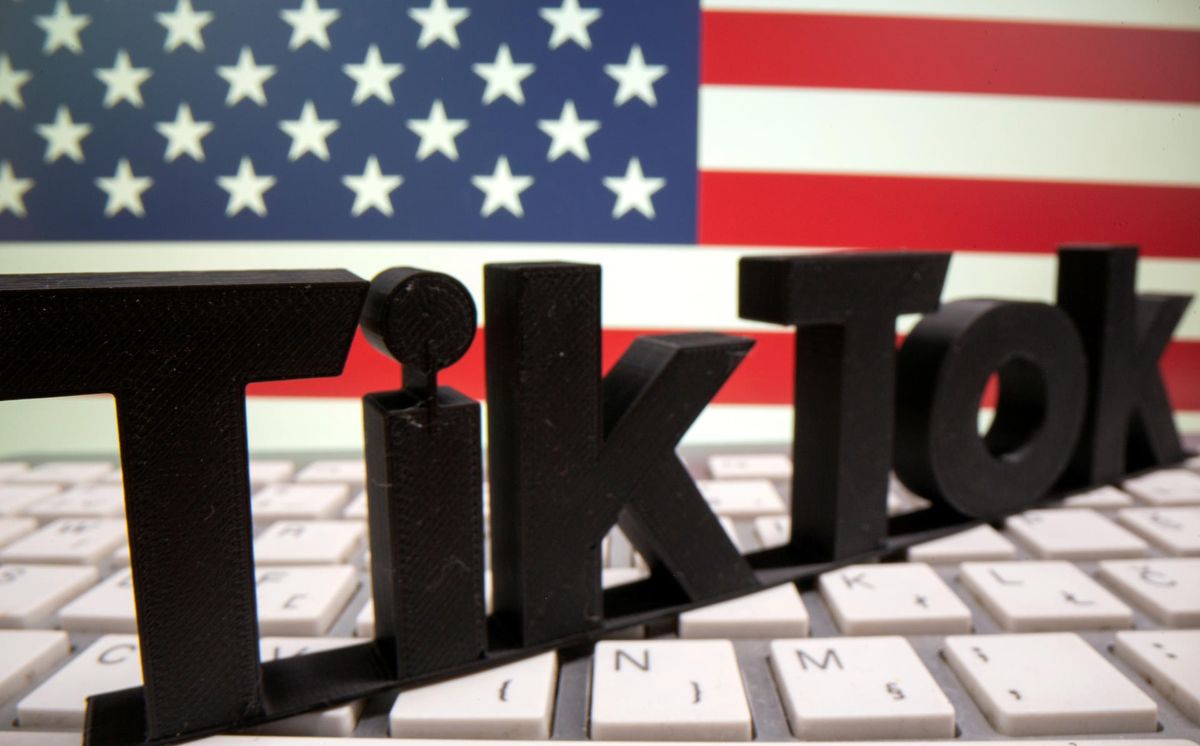US-China tensions have led to multiple TikTok social media clones

A few minutes every morning is all you need.
Stay up to date on the world's Headlines and Human Stories. It's fun, it's factual, it's fluff-free.
Social media apps are increasingly adopting the features of their rivals in the pursuit of bigger market shares and user engagement.
Amid the broader trade war between the United States and China, 2020 has witnessed a new complication in US-China relations – American attacks against Chinese-owned social media apps.
In particular, the popular short-form video-sharing app TikTok – known in China as Douyin – has been repeatedly targeted by the Trump administration as a grave national security threat, owing to its ownership by Chinese tech company ByteDance Ltd.
The Trump administration has repeatedly sought to ban the app and force the sale of its US operations to a “very American” company, in Trump’s words.
However, with 2020 drawing to a close, TikTok still has not been banned, remains available for download and is no closer to being sold.
But the impending nature of TikTok’s ban has emboldened competitors. Rival social media apps have adopted TikTok-like features to fill the chasm that could eventually be left behind should TikTok be banned.
And this development parallels a broader pattern in the industry. Social media apps are increasingly adopting the features of their rivals in the pursuit of bigger market shares and user engagement.
TikTok void
For months, TikTok’s immediate future has been incredibly uncertain.
President Donald Trump signed a series of executive orders in August that banned business with TikTok owner ByteDance on the grounds that the company posed a threat to “national security.”
The ban gave the deadline of September 15 for TikTok’s US operations to be sold to ensure it could continue operating in the country.
Though the president gave preliminary approval to a deal involving US tech company Oracle Corporation in September, TikTok’s position has remained relatively unchanged since then.
At the end of September, TikTok received a small reprieve from its imminent ban in the form of a US court order temporarily staying the ban.
Once again, in October, TikTok’s ban was prevented by another court order, with a federal judge in Pennsylvania granting a preliminary injunction against a series of bans by the US Commerce Department that were set to go into effect in November. The injunction was given while the court considered the case of a group of TikTok users disputing the ban.
Amid the chaos of the US election, TikTok reportedly fell off the Trump administration’s radar. In November, TikTok alleged that, although the deadline for a sale was only days away and it had filed a petition to extend this, it had received no “substantive feedback” from the Trump administration and had effectively fallen out of contact with them.
Despite this, TikTok’s sale deadline was twice extended and TikTok currently has until December 4 to either sell or “spin out” its US business.
Even with these deadlines, however, it is unlikely that any ban is necessarily imminent given the orders issued by US courts.
Nonetheless, it is clear that TikTok’s future in the US remains uncertain.
Social media clones
It is this uncertainty that TikTok’s big social media competitors have sought to exploit. To do so, they have had to overcome TikTok’s massive, and growing, US audience.
As of August, TikTok boasted some 100 million active monthly users in the US alone. In November, one of the most famous TikTok creators, Charli D’Amelio, was the first to hit 100 million followers on the app.
TikTok is expected to grow even further. By 2021, TikTok is projected to top 1.2 billion active users a month worldwide.
Despite this, competitors are rising to the challenge.
In October, Snap Inc. officially launched the beginnings of its TikTok rival on its social media app Snapchat, known as “Sounds.”
Having partnered with big music industry labels and publishers, Snapchat’s “Sounds” feature was the first step in challenging TikTok’s success by allowing Snapchat users to set their “Snaps” to licensed music.
Music and sound is at the core of TikTok’s success, but Snapchat hoped to emulate this thanks to the fact that it’s used by 90% of 13-24 year olds in the US.
After “Sounds,” came “Spotlight,” a new feature on Snapchat remarkably similar to TikTok.
“Spotlight” introduced a new vertically scrolling feed on the Snapchat app in which users could watch short, entertaining videos recommended to them by a personalized algorithm – just like TikTok.
To encourage influencers and others to use the platform, Snapchat also announced it would distribute US$1 million every day to Snapchat users who created the top Snaps on Spotlight – determined by how many unique views a Snap gets.
The financial encouragement is a clear response to other TikTok “clones” that have enjoyed a relatively lukewarm reception.
For instance, Instagram’s “Reels,” another TikTok clone that allows Instagram users to create short videos in TikTok fashion, was recently placed front-and-center on the Instagram app following a redesign of the app’s user interface to encourage greater engagement with the new feature.
Though social media companies are lining up to snap at TikTok’s market, social media is not “cloning” TikTok alone.
In November, Twitter officially launched its new “Fleets” feature worldwide.
The feature allowed Twitter users to send disappearing messages that feature at the top of a users’ feed that followers can quickly react to.
If it sounds familiar, that’s because it is. “Fleets” is essentially a direct copy of other successful implementations of “Stories,” time-limited posts that users can make on a variety of social media apps, from Instagram and Snapchat to Messenger and now even LinkedIn.
These developments showcase one reality of the social media industry – competitors are willing to copy, sometimes blatantly, the successful features of their rivals.
In the case of TikTok, which already faces innumerable smaller-scale clones of its successful formula, US-based social media giants have been more than happy to take advantage of the Chinese-based app’s potential demise, threatened as it is by the US government.
Have a tip or story? Get in touch with our reporters at tips@themilsource.com




Comments ()